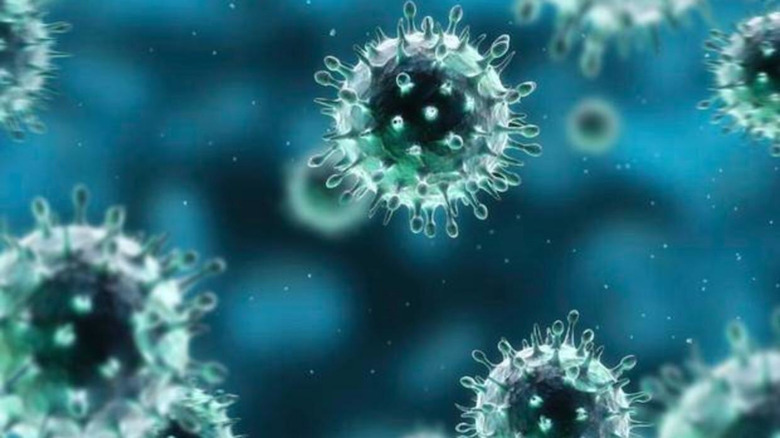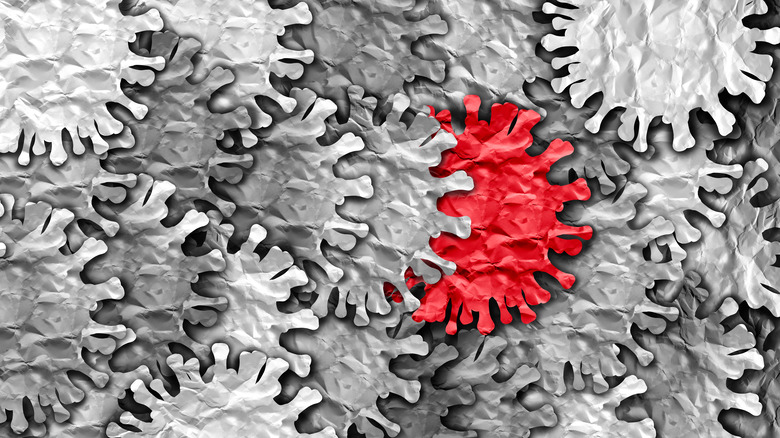The Real Reason Viruses Mutate
As viruses spread around the globe — from the flu to the virus that causes COVID-19 — they change and adapt by acquiring mutations. Most of these mutations are small and insignificant. In fact, some mutations may make a virus less serious, according to Breakthroughs, an informational website run by Pfizer. Less commonly, mutations may make viruses more deadly, more transmissible, or more evasive.
This is what happened with the Delta variant of SARS-CoV-2. It became twice as contagious as previous variants, it likely caused more extreme illness in some people, and it spread more quickly, according to the CDC. Largely because of this, despite widespread vaccine availability, more people died of COVID-19 in 2021 than in 2020, according to The Wall Street Journal.
The World Health Organization named Delta a "variant of concern," the most serious categorization for coronavirus variants. In late November 2021, the newly emerged Omicron variant was also named a variant of concern. As of this writing, much is still unknown about the newer variant, but it has attracted the attention of scientists due to its sizable number of mutations, most of them on its spike protein, a part of the virus that significantly affects infectivity (via CNN).
But why do viruses mutate to begin with, and is it something that we can stop?
How mutations occur
Most of what we know about viral mutation comes from observing the influenza virus, which belongs to a family of viruses that are more prone to mutation than coronaviruses (via National Library of Medicine). According to Breakthroughs, flu viruses can change through antigenic drift, in which viruses mutate through errors that accumulate slowly over time. Called antigenic shift, viruses can also change abruptly through "mating" with a separate strain of flu virus (viruses do not really mate — unlike bacteria, they are not technically alive [per Scientific American] — but when they come in contact with a similar virus, they may shuffle structures in a process known as reassortment).
Viruses are segments of genetic material, either based around DNA or RNA, according to Tufts Now. Like the flu, coronaviruses are based around RNA, which would usually mean more mutations than DNA-based viruses as RNA-based viruses make a lot more errors when they invade host cells. "That's not great for us, because it allows them to mutate rapidly and avoid the immune system," said Marta Gaglia, a Tufts researcher, in an interview with Tufts Now. "But if they make too many mistakes, it's not good for the virus either, because the viruses will just break down."
How viruses die
Yet, coronaviruses have a different skill than most other RNA-based viruses. In a metaphor commonly used by scientists, they know how to "proofread" (via Tufts). This means they mutate more slowly and are less likely to suddenly collapse. Scientists currently believe that SARS-CoV-2 mutates about four times slower than the flu, according to Breakthroughs.
The flu changes so much that a new vaccine for it is made every single year to respond to new strains. But because SARS-CoV-2 mutates slowly, vaccines designed for older variants may hold up for a longer period of time, until more significant mutations accumulate. So far, it's believed that the SARS-CoV-2 vaccines remain effective against all variants of the disease (via CDC), but the longer the virus circulates, the more probable it is that a vaccine-resistant strain eventually emerges. This can only happen if the virus remains in circulation, so the best defense against serious mutations are worldwide actions to restrict the spread of the virus, including mass vaccination (via USA Today).


